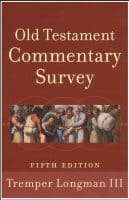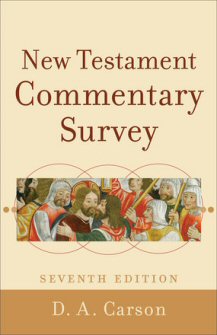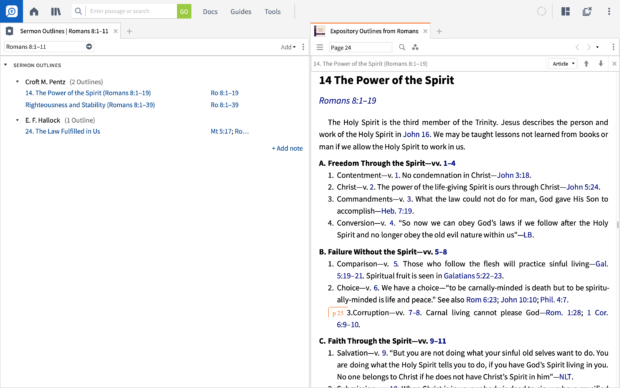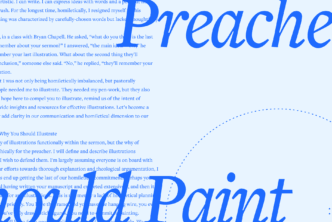Prayer and personal study are vital to powerful biblical teaching, but good teachers and preachers know that they are not the first ones to travel these interpretive pathways. It is often helpful to access what other pastors and theologians have said concerning the passage you are studying.
Let’s take a look at three key ways to see how others handled your chosen topic:
- Commentaries
- Sermon outlines
- Sermon manuscripts
If you truly want to write a brand-new Sunday school curriculum, you might start by first adapting preexisting curriculum to get your feet wet. After doing that a few times, you’ll have a better sense of what works and what doesn’t, and you’ll be in a good place to write your own.
Commentaries
Commentaries are a standard go-to resource for help with a passage. They are comprehensive resources, covering the many aspects of the interpretive process.
There are many different types of commentaries, each with a different purpose. These include:
- Critical commentaries. Sometimes called “exegetical commentaries,” these address technical aspects of a text, including detailed analysis of the Greek or Hebrew, text criticism, and other scholarly matters. One needs at least some familiarity with the original languages to interact with these.
- Pastoral commentaries. One level down in technicality, pastoral commentaries (sometimes called “expository” commentaries) are intermediate works that focus only on the essential technical matters because they also want to make room for practical application and exposition. They are written for use in teaching and preaching, primarily.
- Popular commentaries. Finally, popular or “devotional” commentaries are the most accessible commentary. Users need have no familiarity with the original languages, making them ideal for lay audiences or cursory studies. They simply explain the text and its application, not bringing the reader into debates or technical concerns.

Old Testament Commentary Survey, 5th ed.
This commentary survey from Tremper Longman III reviews the most widely known and published commentaries on the Old Testament.

New Testament Commentary Survey, 7th ed.
In the same vein as the Longman’s Old Testament Commentary Survey, D. A. Carson wrote a companion volume for New Testament commentaries.
Bestcommentaries.com
This site has aggregated reviews on thousands of commentaries to come up with a well-regarded list of the top commentaries for every book of the Bible.
Ultimately, the Holy Spirit is the one who changes lives and hearts. But he chooses to use our efforts as we share his Word. As you dig into Scripture and begin building Sunday school curriculum, you may feel ill-prepared and under-equipped. Take heart, knowing that God delights in showing himself strong through those who feel weak. As the apostle Paul said of his own ministry, “When I am weak, then I am strong” (2 Cor 12:10).
Denver Seminary recommendations
These bibliographies from Denver Seminary categorize their recommendations by different types of commentaries.
Sermon Outlines
“You want people to be fed well from the Word of God, but preparing multiple messages each week can be exhausting. This is especially true when you are trying to balance other responsibilities.
That’s why it’s helpful to have tools that help you discern the meaning and structure of your biblical text quickly. Consulting sermon outlines are helpful for this because you can see how others have organized the text and/or their sermon.

Sermon Outline Guides in Logos
The Sermon Outlines guide section lists all of the resources in your library with sermon outlines that have been tagged with the passage you entered. Click the link to open the resource to the location of the outline. Outlines can be copied to a sermon document from the resource context menu.
Learn more about sermon outlines in Logos.

Baker’s Sermon Outlines Collection (50 vols.)
The Baker Sermon Outlines series provides busy pastors with well-researched sermon outlines based on specific texts of Scripture and practical topics. Scriptural and easy to use, these time-saving books include homiletical outlines for Bible passages, holidays, evangelism, great themes of the Bible, special occasions, prayer meetings, and more. Ideal for both expository and topical preaching styles, this series includes more than three thousand pages of outlines that will guide you in your study and provide the rhetorical framework for a persuasive, biblical, and gospel-centered sermon.
Sermon Manuscripts
Throughout the history of the church, God has blessed his people with a wealth of great preachers and sermons. Accessing these sermons is like using a bucket to draw water from a deep well.
Sermon Archives in Logos
Learn how to access sermons conveniently as you study your passage or topic in Logos.
Explore the Sermon Archives feature in Logos.
A word of caution
Opinions vary on the acceptability of using other preachers’ material. Renowned Baptist preacher Adrian Rogers said, “If my bullet fits your gun, shoot it, but use your own powder.” Spurgeon also said, “It’s fine to borrow the axe as long as you chop your own wood.” Teaching and preaching is hard work, and there is a temptation to take shortcuts and attempt to pass others’ work off as your own. Guard yourself against letting the wealth of resources turn you into a plagiarizing counterfeit. If you are going to borrow from another source, give proper credit.

New Testament Use of the Old Testament in Logos 9 Bronze
Reading the book of Romans is never fruitless, but you’ll miss gold if you don’t catch its Old Testament references. With the New Testament Use of the Old Testament interactive in Logos, you can quickly discover where Paul refers to the Old Testament, and then explore the context more fully. You can find this feature in Logos 9 Bronze and above.
Conclusion
Generally speaking, preachers should regard commentaries, outlines, and sermons all the same: as opportunities for insights. Like a musician who only listens to their own music, a preacher who never consults others will dry up and suffer a lack of creativity. Refine your craft by examining how others treat and preach your passage or topic.





